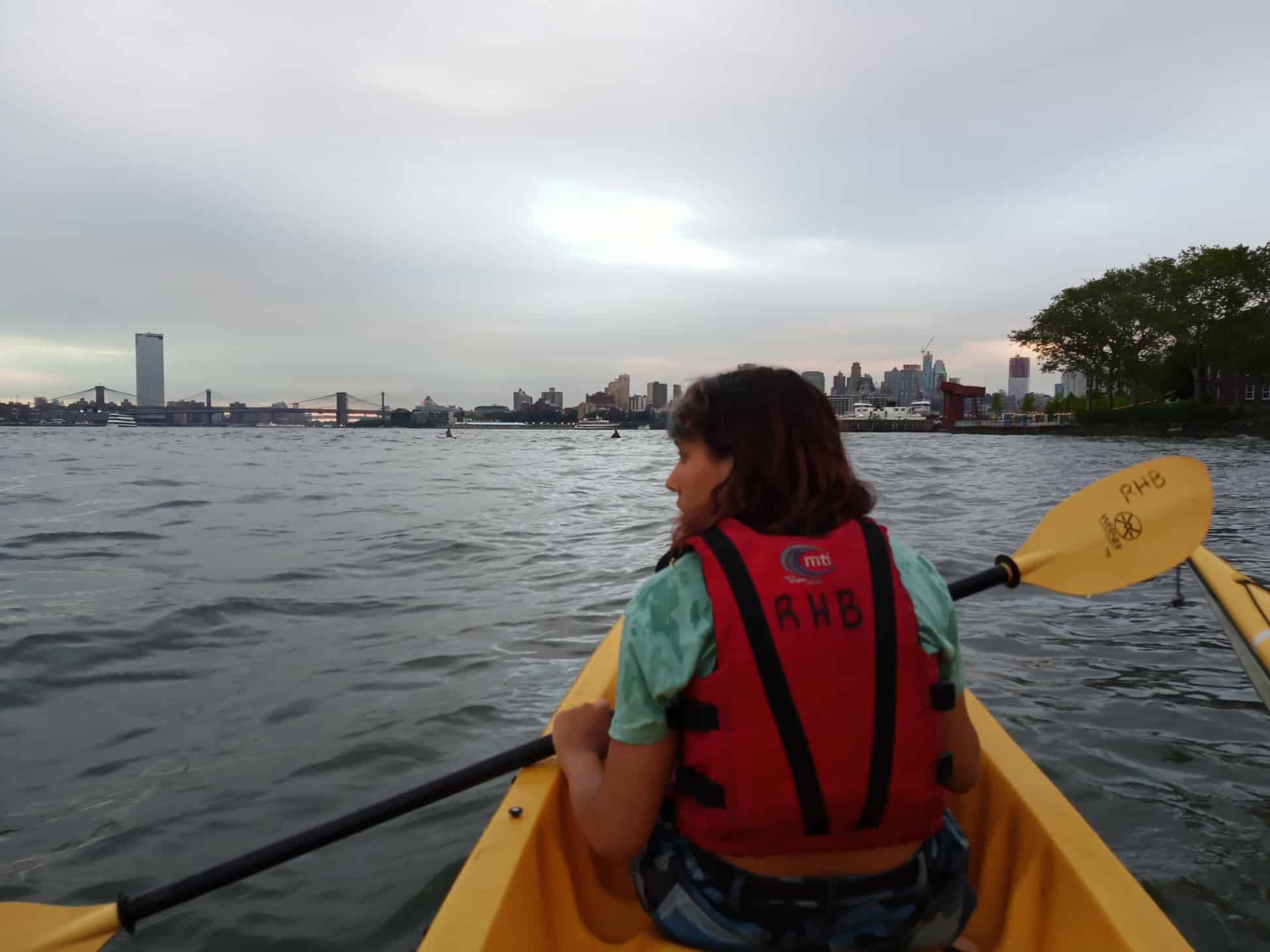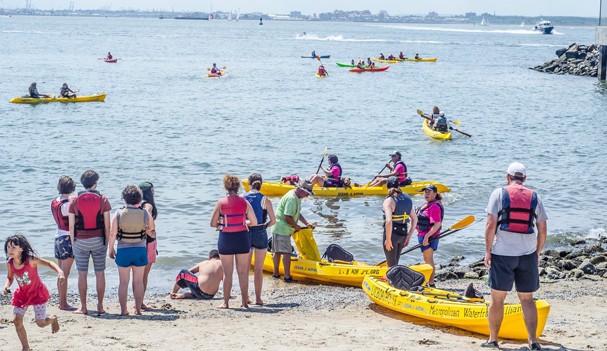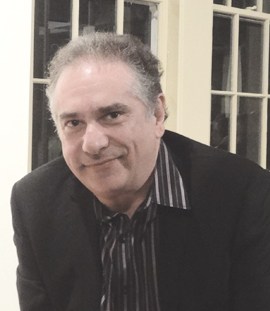I’ve kayaked only once in my life, about eight years ago on Lake Mohonk – a half-mile long glacial lake in upstate New York. For me, the experience was terrifying with the wooden pier disappearing from sight as I paddled away with so much empty water surrounding me in the single-person kayak. At one point I stopped, struck with panic and with weary arms, after going around a bend. It felt like I’d never be seen if something bad were to happen, especially since no one else was that far out on the water, so early in the morning. When I made it back to land later, I told a resort employee that would be my first and last time on the water. What I should’ve done was stay by the pier and go a little bit further each time during my stay to feel more comfortable – rather than paddle all the way out in one trip because I felt pier-pressured to check it off my vacation to-do list.
In hindsight what I probably could’ve used back then to prep for that experience was something like Red Hook Boaters (RHB). They’re a volunteer organization that has been providing free kayaking to kids and adults since 2006. Their mission is to help people get on the water and enjoy the New York Harbor, and to instill a sense of protection for the city’s unique coastal environment by maintaining the small-boat launch site at Louis Valentino Jr. Park and Pier.
“It’s really cool and fun to be out on the water and to get to see some cool ships passing by,” RHB volunteer Sherry Legg said one Thursday evening as kayaks were being taken out of the group’s container behind her.

The way it works is you arrive at the very end of Coffey Street, put your name on a list (first-come, first-served) and then take a kayak out for 20 minutes to explore the cove at your own pace. While many have paddled out toward the end of the pier and back from the small beach, some have gone out to Governors Island, the Statue of Liberty and Gowanus on RHB guided trips/tours.
Twelve-year-old Maggie Dalencour, who’s been kayaking with RHB for six years now, enjoys going out on the water whenever she can.
“I love coming here. It’s something easy [to do] after school when I’m done with my homework [because] I don’t like technology too much,” Dalencour told this paper. “So this is something fun I do on Thursdays and, on Sundays, it keeps me really active throughout the summer.”
While you might be able to consider her a seasoned pro, compared to people like myself, she added that there’s no reason to be afraid of the recreational sport.
“Most people think it’s scary [because] that they might get tipped over,” Dalencour said. “Even if you’ve never kayaked before, there isn’t a big chance you’ll flip out – unless you’re rocking the boat.”
This summer you can hone your kayaking skills on Sunday afternoons (1 to 4 pm until Sept. 22) and Thursday evenings after work (6 to 8 pm until Aug. 15), weather permitting. Legg notes that wait times on Sundays are usually about a half hour. RHB offer single and double, sit-on-top kayaks that are unsinkable and self-bailing. Children under the age of 14 need an adult to go in the boat with them. Anyone under the age of 18 needs a parent or guardian to sign a waiver before they can paddle, and the adult must stay on the beach while his or her child is on the water.
Since water pollution is a major problem, attendees are encouraged to join in the group’s beach cleanup efforts, removing trash and debris that have washed ashore with supplied gloves and trash bags. For more information, visit redhookboaters.org.
Top photo from Red Hook Boaters’ website
Author
-

George Fiala has worked in radio, newspapers and direct marketing his whole life, except for when he was a vendor at Shea Stadium, pizza and cheesesteak maker in Lancaster, PA, and an occasional comic book dealer. He studied English and drinking in college, international relations at the New School, and in his spare time plays drums and fixes pinball machines.
View all posts
George Fiala has worked in radio, newspapers and direct marketing his whole life, except for when he was a vendor at Shea Stadium, pizza and cheesesteak maker in Lancaster, PA, and an occasional comic book dealer. He studied English and drinking in college, international relations at the New School, and in his spare time plays drums and fixes pinball machines.










